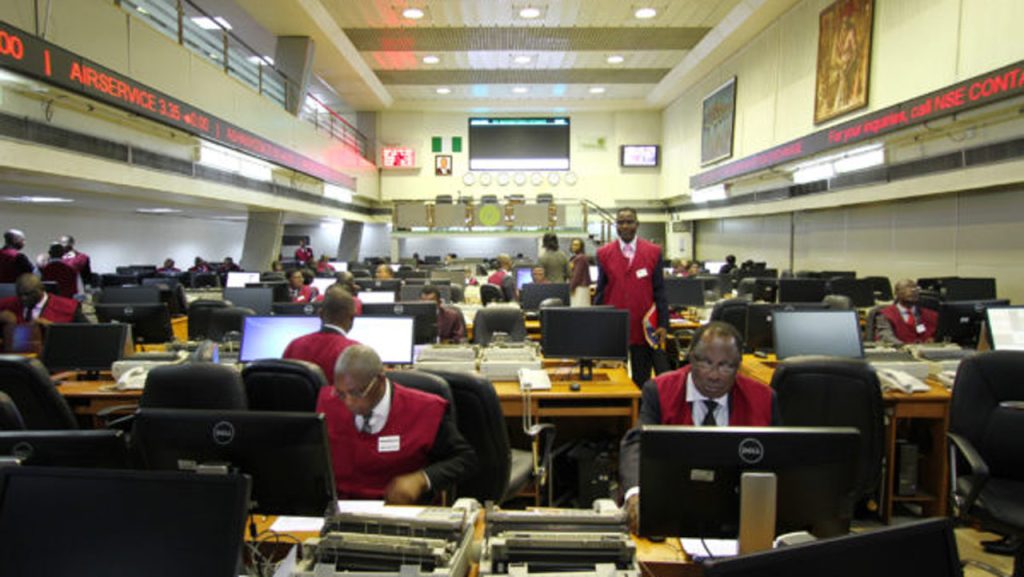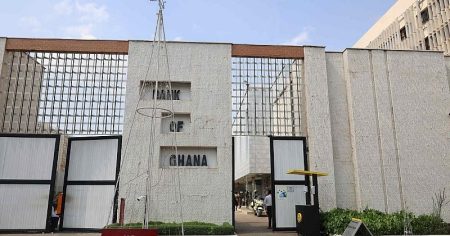The Nigerian Exchange Limited (NGX) witnessed a significant downturn in trading activity during the reported week, marked by a substantial decrease in both trading volume and value. Investors traded a total of 1.183 billion shares worth N28.868 billion, a stark contrast to the previous week’s figures of 7.521 billion shares valued at N398.949 billion. This represents a staggering 1282% drop in transaction value, translating to a loss of N370 billion for investors. The reduced trading activity can be attributed to the shortened trading week, with two days declared public holidays for the Eid al-Fitr celebration.
Despite the overall market downturn, the financial services sector continued to dominate trading activity. This sector accounted for 76.60% of the total traded volume and 65.56% of the total value, with 906.590 million shares worth N18.926 billion exchanged in 22,876 deals. Trailing behind were the consumer goods and services industries. Consumer goods saw 71.059 million shares worth N2.224 billion traded in 3,394 deals, while the services industry recorded a turnover of 47.305 million shares worth N396.897 million. The dominance of the financial services sector highlights its continued significance within the Nigerian stock market. The top three traded equities – Fidelity Bank Plc, Zenith Bank Plc, and Universal Insurance Plc – further underscored this trend, contributing significantly to the overall trading volume and value.
The NGX All-Share Index and Market Capitalisation reflected the overall negative market sentiment, declining by 0.14% and 0.17% respectively, closing the week at 105,511.89 and N66.147 trillion. While most indices followed this downward trajectory, some sectors demonstrated resilience. Notably, the NGX CG (Consumer Goods), NGX Banking, NGX Pension, NGX AseM, NGX AFR Bank Value, NGX MERI Value, NGX Sovereign Bond, and NGX Pension Broad Indices all registered gains, ranging from 0.02% to 1.02%. This suggests that despite the overall market dip, certain sectors maintained positive momentum, potentially driven by specific sector-related news or investor sentiment.
The week saw a notable shift in the number of equities appreciating and depreciating in value. Only 23 equities recorded price appreciation, a significant decrease from the 43 equities in the preceding week. Conversely, 51 equities saw their prices decline, compared to 36 in the previous week. A further 73 equities remained unchanged, a slight increase from the previous week’s 71. This shift indicates a broader negative market sentiment, with more companies experiencing price declines than gains. This could be attributable to various factors, including profit-taking activities after previous gains, macroeconomic concerns, or sector-specific challenges.
Among the top decliners were UAC of Nigeria, Sunu Assurance, Universal Insurance, Oando, and Consolidated Hallmark Holdings, experiencing losses ranging from 8k to N6.50. These declines might reflect company-specific issues, industry pressures, or broader market corrections. On the other hand, VFD Group, Union Dicon Salt, Africa Prudential, Nigerian Exchange Group, and UPDC Real Estate Investment Trust emerged as the top gainers, with increases ranging from 10.91% to 20.76%. These gains could be attributed to positive company performance, favorable market conditions, or investor optimism regarding future prospects.
In summary, the Nigerian stock market experienced a significant downturn during the reported week, characterized by drastically reduced trading activity and a decline in the overall market indices. While the financial services sector maintained its dominance, the overall negative sentiment was reflected in the higher number of declining equities compared to those appreciating. The specific gainers and losers likely reflect a combination of company-specific performance, sector dynamics, and broader market trends. The shortened trading week due to public holidays also contributed to the reduced market activity. While some sectors showed resilience, the overall market performance underscores the inherent volatility of the stock market and the influence of external factors on investor behavior. Further analysis is needed to fully understand the underlying drivers of this week’s performance and predict future market trends.














